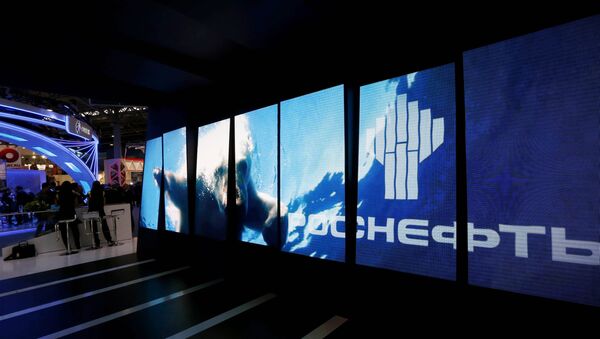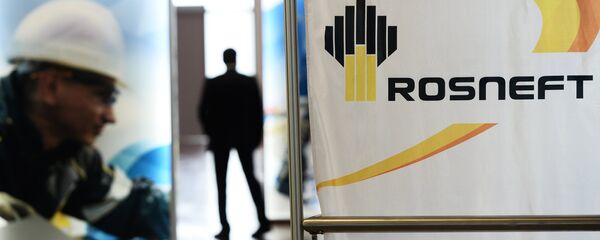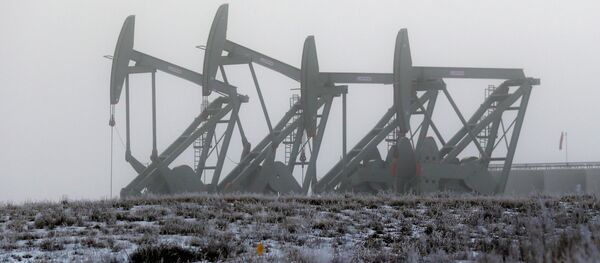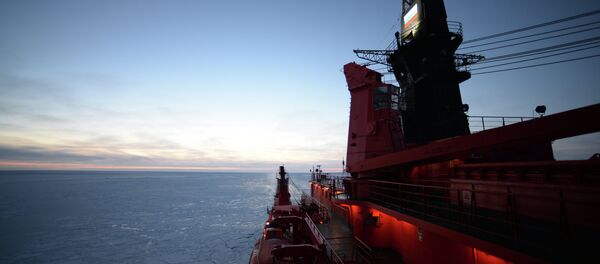“According to our estimates, Rosneft can offer its European partners to join projects worth $100 billion to build energy bridges between Russia and Europe and Russia and the Asia Pacific region,” Sechin said at the Fourth Eurasian Forum in Verona, Italy. He said that despite the crisis and sanctions Rosneft has remained one of the largest investors among oil and gas companies in the world.
Despite the crisis and sanctions
The Russian economy has adjusted to the new conditions, Sechin said in his opening remarks at the forum, citing President Putin and the Federal State Statistics Service, which reported a 0.6 percent increase in industrial production in September compared to August this year.
After citing macroeconomic data, the Rosneft CEO spoke about his company’s performance.
In the current situation, Rosneft has continued to reduce the tax burden. “The company has been working consistently to reduce its debts. In particular, it has reduced debts under its syndicated loans by over 50 percent, from $56.7 billion in late 2013 to $27.2 billion in late September 2015,” Sechin said.
Despite the crisis and sanctions, Rosneft remains one of the largest investors among oil and gas companies in the world, Sechin told the forum.
In 2015, the company will have bought at least 21.9 billion euros worth of physical resources, work and services. Its business plan for 2016-2018 provides for increasing aggregate purchases to 23-24 billion euros a year, the Rosneft CEO said.
Rosneft is ready to buy
“Under its business plan, the company’s aggregate requirement for logistics support in 2016–2018 is estimated at 15.9 billion euros,” he said.
Sechin said European companies are losing their traditional edge in their deliveries to Rosneft. The amount of contracts with European companies signed in 2015 is nine times less than the volume of deliveries in the same period under past contracts.
“The substitution of suppliers is a fast process, with the beneficiaries being Asia Pacific and US companies. I believe that European suppliers can and should regain their positions,” Sechin said.
Hard times for European oil refineries
The situation in the oil market also affects the refining sector, the Rosneft CEO said.
“The refinery margin has grown due to a decrease in oil prices. However, the general situation in European oil refining is not good at all,” he said.
According to Sechin, oil refineries with an aggregate capacity of 100 million metric tons have closed in Europe since 2010, and other plants with a capacity of 20 million metric tons will be shut down or sold.
“The European refining sector is still facing long-term constraints to profitability such as weak demand and increasing competition from external suppliers. A major decline in the financial situation of European refineries can be expected already in 2017,” Sechin said.
The Rosneft CEO believes that oversupply will continue to plague the European petrochemicals market until 2040.
“The financial and economic indicators in the refining sector depend on the quality of oil. The refineries that can get a stable supply of crude oil with the characteristics that are maximally suited to the plant’s equipment will have a competitive edge. In other words, long-term contracts for crude oil with approved specifications will help refineries adopt more effective modernization strategies geared to demand,” Sechin said.
Who controls the oil market?
The Rosneft CEO also spoke about the situation on the oil market, which, in his opinion, is currently controlled by the United States.
“This has happened not only because of the increased possibilities for shale oil production, but also because the United States holds the instruments for influencing the development of a competitive oil market,” Sechin said. These instruments include financial resources and derivatives, stock exchanges, a ramified network of oil and gas pipelines and a vast amount of contractors.
Sechin also pointed to alarming trends on the oil market. “The aggregate debt of 25 shale oil producing companies has reached about $150 billion,” he said.
The future of the oil market
The long-term situation on the oil market will depend on reserves. “According to recent estimates, the global demand for oil, which is expected to grow, can only be satisfied through increased production, including at oil fields with fairly high production costs,” Sechin said.
By 2030, development will start at oil fields where production costs about $75-$98 per barrel in 2015 prices. At the same time, a lot of deposits currently operating will be decommissioned.
The Fourth Eurasian Forum in Verona was organized by the St. Petersburg International Economic Forum and the Conoscere Eurasia Association. The St. Petersburg International Economic Forum (SPIEF), which has held sessions outside of Russia since 2012, supports international business events such as the Eurasian Forum in key regions of the world.




